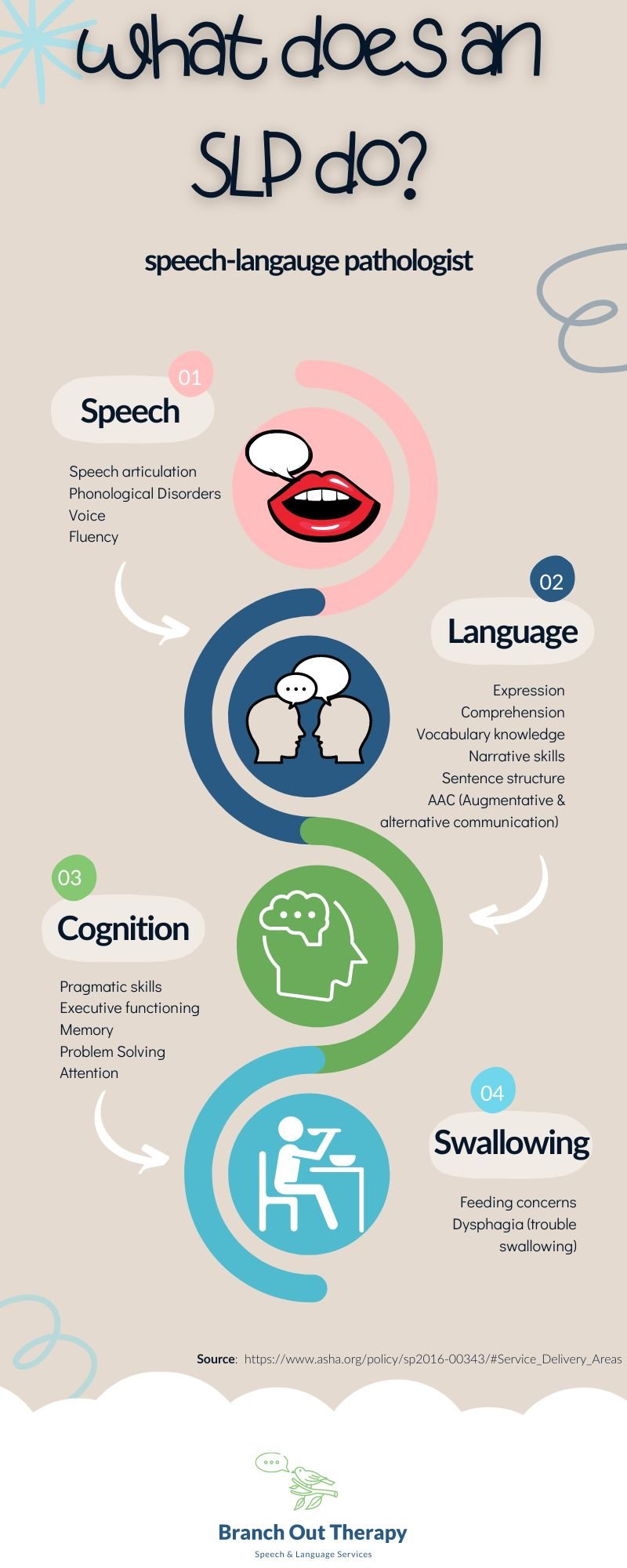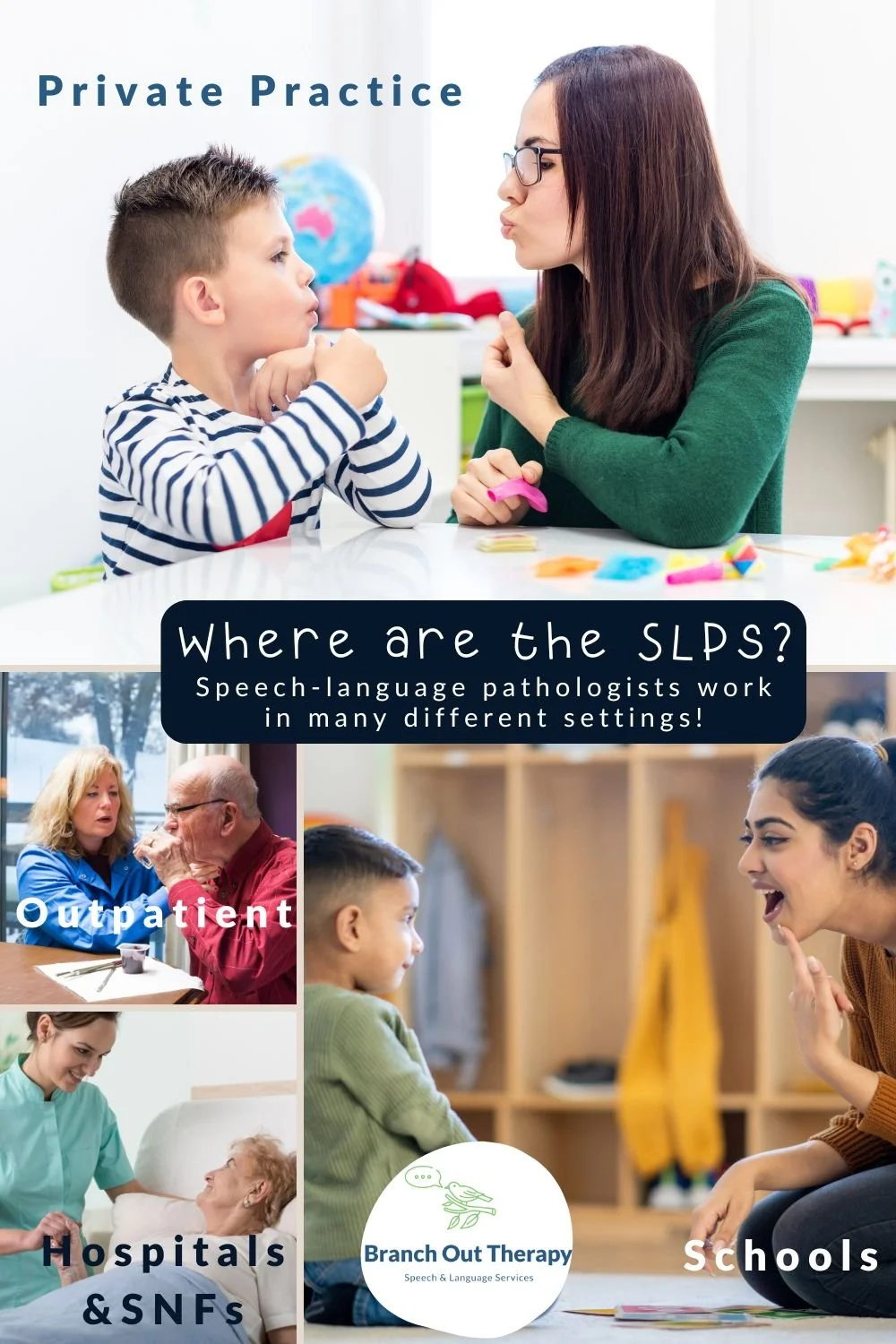How do I know if my child needs speech therapy?
Could your child benefit from speech therapy? While many know speech therapists as the ones helping children finally get that tricky "r" sound down, speech therapy involves a LOT more than turning “wabbit” into “rabbit.” A parent once told me, “I had no idea speech therapists even worked on that!” Her school-aged child had been referred for speech therapy due to concerns about language comprehension skills and the impact on her academic performance. Over the years, I have encountered many teachers and parents who tell me their child's speech “sounds fine” when asked if they have concerns about the child's communication. This would lead me to ask more direct questions like:
Does your child have difficulty understanding directions?
Does your child have challenges with making friends or talking to peers?
How is your child doing in school?
How does your child do with answering questions?
Does your child have any difficulty having conversations?
Does your child understand jokes and non-literal language?
Can your child make inferences or answer “why” questions?
What does a speech-language pathologist (SLP) do? In the states, most Speech-Language Pathologists are members of the American Speech-Language-Hearing Association (ASHA). ASHA defines a speech-language pathologist (SLP) as "the professional who engages in professional practice in the areas of communication and swallowing across the lifespan. Communication and swallowing are broad terms encompassing many facets of function. Communication includes speech production and fluency, language, cognition, voice, resonance, and hearing.”
A more comprehensive list of service areas for speech-language pathologists can be found on ASHA’s website here. Or click here for more information about ASHA and what those CCCs mean.
Because the scope of practice is so vast, many SLPs specialize in a subset of areas. An individual SLP’s scope of practice will be influenced by their work setting, experience, and areas of interest/specialization. Below are some common settings for SLPs, along with speech therapy areas that may or may not be addressed in that setting.
Early Intervention
Feeding
Gesturing/Baby Signs
Early Sounds
Play Skills
Pre-k & Schools
Articulation & phonology skills
Literacy
Comprehension
Expressive Communication
Pragmatics
Fluency
AAC
Private Practice
Any area(s) involving communication, feeding/swallowing, and voice for the age group served
Specialized areas such as voice, early communication skills, AAC, aural rehabilitation, bilingual services, transgender voice therapy
Hospital
Lactation Consult
Feeding
Swallowing/Dysphagia
Tracheostomy care
Skilled Nursing Facilities
Memory strategies
AAC
Aphasia
Speech & Language Services at Branch Out Therapy
Branch Out Therapy LLC provides private speech & language therapy services for children ages 3 through teens at home, in school, and via teletherapy. Branch Out Therapy is based out of Clintonville and serves the surrounding Columbus area, including (but not limited to) Upper Arlington, Grandview Heights, Worthington, Westerville, Dublin, Grove City, and Gahanna. Branch Out Therapy LLC also provides school contracting services.
Service areas include:
Comprehensive evaluation of speech, language, and fluency skills
Neurodivergent affirming care
Speech articulation and phonological disorders
Childhood Apraxia of Speech
Fluency
Expressive communication skills
Comprehension skills
Executive functioning
Pragmatic and Self-Advocacy skills
Vocabulary
Play-based therapy
Branch Out Therapy LLC uses up-to-date, evidence-based practices and informs families about support available in the community. Included with evaluation and therapy services:
Parent coaching and consultation, including reviewing progress and providing simple strategies for carry-over at home
Recommendations and progress reports that you can share with your child’s school to advocate for your child’s success academically and socially
Around-the-clock email and text support to answer any questions you have regarding your child’s communication
Get in Touch!
Schedule a FREE 15-minute consultation call today to determine if your child could benefit from speech therapy. Not sure if we provide services for your needs? Feel free to contact us. If we cannot help you, we will do our best to refer you to the appropriate professional(s) to address your concerns. We look forward to speaking with you!


